- Home
- Robin Cook
Contagion Page 2
Contagion Read online
Page 2
Reaching back into the Jeep, he pulled out two old and soiled anoraks and work gloves. He handed a set to Dick. “You’ll need these,” he explained. “We’ll be down below the permafrost.” Then he reached back into the Jeep for a heavy-duty flashlight.
“All right,” Ron added nervously. “We can’t be here long. I don’t want anybody coming along the road and wondering what the hell is going on.”
Dick followed Ron as he headed north away from the road. A cloud of mosquitoes mystically materialized and attacked them mercilessly. Looking ahead, Dick could see a fog bank about a half mile away and guessed it marked the coast of the Arctic Ocean. In all other directions there was no relief from the monotony of the flat, windswept, featureless tundra that extended to the horizon. Overhead seabirds circled and cried raucously.
A dozen steps from the road, Ron stopped. After one last glance for approaching vehicles, he bent down and grabbed the edge of a sheet of plywood that had been painted to match the variegated colors of the surrounding tundra. He pulled the wood aside to reveal a hole four feet deep. In the north wall of the hole was the entrance to a small tunnel.
“It looks as if the hut was buried by ice,” Dick said.
Ron nodded. “We think that pack ice was blown up from the beach during one of the ferocious winter storms.”
“A natural tomb,” Dick said.
“Are you sure you want to do this?” Ron asked.
“Don’t be silly,” Dick said while he donned the parka and pulled on the gloves. “I’ve come thousands of miles. Let’s go.”
Ron climbed into the hole and then bent down on all fours. Lowering himself, he entered the tunnel. Dick followed at his heels.
As Dick crawled, he could see very little save for the eerie silhouette of Ron ahead of him. As he moved away from the entrance, the darkness closed in around him like a heavy, frigid blanket. In the failing light he noticed his breath crystallizing. He thanked God that he wasn’t claustrophobic.
After about six feet the walls of the tunnel fell away. The floor also slanted downward, giving them an additional foot of headroom. There were about three and a half feet of clearance. Ron moved to the side and Dick crawled up next to him.
“It’s colder than a witch’s tit down here,” Dick said.
Ron’s flashlight beam played into the corners to illuminate short vertical struts of beluga rib bones.
“The ice snapped those whalebones like they were toothpicks,” Ron said.
“Where are the inhabitants?” Dick asked.
Ron directed his flashlight beam ahead to a large, triangular piece of ice that had punched through the ceiling of the hut. “On the other side of that,” he said. He handed the flashlight to Dick.
Dick took the flashlight and started crawling forward. As much as he didn’t want to admit it, he was beginning to feel uncomfortable. “You’re sure this place is safe?” he questioned.
“I’m not sure of anything,” Ron said. “Just that it’s been like this for seventy-five years or so.”
It was a tight squeeze around the block of dirty ice in the center. When Dick was halfway around he shone the light into the space beyond.
Dick caught his breath while a little gasp issued from his mouth. Although he thought he’d been prepared, the image within the flashlight beam was more ghoulish than he’d expected. Staring back at him was the pale visage of a frozen, bearded Caucasian male dressed in furs. He was sitting upright. His eyes were open and ice blue, and they stared back at Dick defiantly. Around his mouth and nose was frozen pink froth.
“You see all three?” Ron called from the darkness.
Dick allowed the light to play around the room. The second body was supine, with its lower half completely encased in ice. The third body was positioned in a manner similar to the first, propped up against a wall in a half-sitting position. Both were Eskimos with characteristic features, dark hair, and dark eyes. Both also had frozen pink froth around their mouths and noses.
Dick shuddered through a sudden wave of nausea. He hadn’t expected such a reaction, but it passed quickly.
“You see the newspaper?” Ron called.
“Not yet,” Dick said as he trained his light on the floor. He saw all sorts of debris frozen together, including bird feathers and animal bones.
“It’s near the bearded guy,” Ron called.
Dick shone the light at the frozen Caucasian’s feet. He saw the Anchorage paper immediately. The headlines were about the war in Europe. Even from where he was he could see the date: April 17, 1918.
Dick wriggled back into the antechamber. His initial horror had passed. Now he was excited. “I think you were right,” he said. “It looks like all three died of pneumonia, and the date is right on.”
“I knew you’d find it interesting,” Ron said.
“It’s more than interesting,” Dick said. “It could be the chance of a lifetime. I’m going to need a saw.”
The blood drained from Ron’s face. “A saw,” he repeated with dismay. “You’ve got to be joking.”
“You think I’d pass up this chance?” Dick questioned. “Not on your life. I need some lung tissue.”
“Jesus H. Christ!” Ron murmured. “You’d better promise again not to say anything about this ever!”
“I promised already,” Dick said with exasperation. “If I find what I think I’m going to find, it will be for my own collection. Don’t worry. Nobody’s going to know.”
Ron shook his head. “Sometimes I think you’re one weird dude.”
“Let’s get the saw,” Dick said. He handed the flashlight to Ron and started for the entrance.
6:40 P.M.
O’HARE AIRPORT, CHICAGO
Marilyn Stapleton looked at her husband of twelve years and felt torn. She knew that the convulsive changes that had racked their family had impacted most on John, yet she still had to think about the children. She glanced at the two girls who were sitting in the departure lounge and nervously looking in her direction, sensing that their life as they knew it was in the balance. John wanted them to move to Chicago where he was starting a new residency in pathology.
Marilyn redirected her gaze to her husband’s pleading face. He’d changed over the last several years. The confident, reserved man she had married was now bitter and insecure. He had shed twenty-five pounds, and his once ruddy, full cheeks had hollowed, giving him a lean, haggard look consistent with his new personality.
Marilyn shook her head. It was hard to recall that just two years previously they had been the picture of the successful suburban family with his flourishing ophthalmology practice and her tenured position in English literature at the University of Illinois.
But then the huge health-care conglomerate AmeriCare had appeared on the horizon, sweeping through Champaign, Illinois, as well as numerous other towns, gobbling up practices and hospitals with bewildering speed. John had tried to hold out but ultimately lost his patient base. It was either surrender or flee, and John chose to flee. At first he’d looked for another ophthalmology position, but when it became clear there were too many ophthalmologists and that he’d be forced to work for AmeriCare or a similar organization, he’d made the decision to retrain in another medical specialty.
“I think you would enjoy living in Chicago,” John said pleadingly. “And I miss you all terribly.”
Marilyn sighed. “We miss you, too,” she said. “But that’s not the point. If I give up my job the girls would have to go to an inner-city public school. There’s no way we could afford private school with your resident’s salary.”
The public-address system crackled to life and announced that all passengers holding tickets for Champaign had to be on board. It was last call.
“We’ve got to go,” Marilyn said. “We’ll miss the flight.”
John nodded and brushed away a tear. “I know,” he said. “But you will think about it?”
“Of course I’ll think about it,” Marilyn snapped. Then she caught herself
. She sighed again. She didn’t mean to sound angry. “It’s all I’m thinking about,” she added softly.
Marilyn lifted her arms and embraced her husband. He hugged her back with ferocity.
“Careful,” she wheezed. “You’ll snap one of my ribs.”
“I love you,” John said in a muffled voice. He’d buried his face in the crook of her neck.
After echoing his sentiments, Marilyn broke away and gathered Lydia and Tamara. She gave the boarding passes to the ticket agent and herded the girls down the ramp. As she walked she glanced at John through the glass partition. As they turned into the jetway she gave a wave. It was to be her last.
“Are we going to have to move?” Lydia whined. She was ten and in the fifth grade.
“I’m not moving,” Tamara said. She was eleven and strong-willed. “I’ll move in with Connie. She said I could stay with her.”
“And I’m sure she discussed that with her mother,” Marilyn said sarcastically. She was fighting back tears she didn’t want the girls to see.
Marilyn allowed her daughters to precede her onto the small prop plane. She directed the girls to their assigned seats and then had to settle an argument about who was going to sit alone. The seating was two by two.
Marilyn answered her daughters’ impassioned entreaties about what the near future would bring with vague generalities. In truth, she didn’t know what was best for the family.
The plane’s engines started with a roar that made further conversation difficult. As the plane left the terminal and taxied out toward the runway, she put her nose to the window.
She wondered how she would have the strength to make a decision.
A bolt of lightning to the southwest jolted Marilyn from her musing. It was an uncomfortable reminder of her disdain for commuter flights. She did not have the same confidence in small planes as she did in regular jets. Unconsciously she cinched her seat belt tighter and again checked her daughters’.
During the takeoff Marilyn gripped the armrests with a force that suggested she thought her effort helped the plane get aloft. It wasn’t until the ground had significantly receded that she realized she’d been holding her breath.
“How long is Daddy going to live in Chicago?” Lydia called across the aisle.
“Five years,” Marilyn answered. “Until he finishes his training.”
“I told you,” Lydia yelled to Tamara. “We’ll be old by then.”
A sudden bump made Marilyn reestablish her death grip on her armrests. She glanced around the cabin. The fact that no one was panicking gave her some solace. Looking out the window, she saw that they were entirely enveloped in clouds. A flash of lightning eerily lit up the sky.
As they flew south the turbulence increased, as did the frequency of the lightning. A terse announcement by the pilot that they would try to find smoother air at a different altitude did little to assuage Marilyn’s rising fears. She wanted the flight to be over.
The first sign of real disaster was a strange light that filled the plane, followed instantly by a tremendous bump and vibration. Several of the passengers let out half-suppressed screams that made Marilyn’s blood run cold. Instinctively she reached over and pulled Tamara closer to her.
The vibration increased in intensity as the plane began an agonizing roll to the right. At the same time the sound of the engines changed from a roar to an earsplitting whine. Sensing that she was being pressed into her seat and feeling disoriented in space, Marilyn looked out the window. At first she didn’t see anything but clouds. But then she looked ahead and her heart leaped into her throat. The earth was rushing up at them at breakneck speed! They were flying straight down…
10:40 P.M.
MANHATTAN GENERAL HOSPITAL,
NEW YORK CITY
Terese Hagen tried to swallow, but it was difficult; her mouth was bone dry. A few minutes later her eyes blinked open, and for a moment she was disoriented. When she realized she was in a surgical recovery room it all came back to her in a flash.
The problem had started without warning that evening just before she and Matthew were about to go out to dinner. There had been no pain. The first thing she was aware of was wetness, particularly on the inside of her thigh. Going into the bathroom, she was dismayed to find that she was bleeding. And it wasn’t just spotting. It was active hemorrhaging. Since she was five months pregnant, she was afraid it spelled trouble.
Events had unfolded rapidly from that point. She’d been able to reach her physician, Dr. Carol Glanz, who offered to meet her at the Manhattan General’s emergency room. Once there, Terese’s suspicions had been confirmed and surgery scheduled. The doctor had said that it appeared as if the embryo had implanted in one of her tubes instead of the uterus—an ectopic pregnancy.
Within minutes of her regaining consciousness, one of the recovery-room nurses was at her side, reassuring her that everything was fine.
“What about my baby?” Terese asked. She could feel a bulky dressing over her disturbingly flat abdomen.
“Your doctor knows more about that than I do,” the nurse said. “I’ll let her know you are awake. I know she wants to talk with you.”
Before the nurse left, Terese complained about her dry throat. The nurse gave her some ice chips, and the cool fluid was a godsend.
Terese closed her eyes. She guessed that she dozed off, because the next thing she knew was that Dr. Carol Glanz was calling her name.
“How do you feel?” Dr. Glanz asked.
Terese assured her she was fine thanks to the ice chips. She then asked about her baby.
Dr. Glanz took a deep breath and reached out and put her hand on Terese’s shoulder. “I’m afraid I have double bad news,” she said.
Terese could feel herself tense.
“It was ectopic,” Dr. Glanz said, falling back on doctor jargon to make a difficult job a bit easier. “We had to terminate the pregnancy and, of course, the child was not viable.”
Terese nodded, ostensibly without emotion. She had expected as much and had tried to prepare herself. What she wasn’t prepared for was what Dr. Glanz said next.
“Unfortunately the operation wasn’t easy. There were some complications, which was why you were bleeding so profusely when you came into the emergency room. We had to sacrifice your uterus. We had to do a hysterectomy.”
At first Terese’s brain was unable to comprehend what she’d been told. She nodded and looked expectantly at the doctor as if she anticipated more information.
“I’m sure this is very upsetting for you,” Dr. Glanz said. “I want you to understand that everything was done that could have been done to avoid this unfortunate outcome.”
Sudden comprehension of what she’d been told jolted Terese. Her silent voice broke free from its bounds and she cried: “No!”
Dr. Glanz squeezed her shoulder in sympathy. “Since this was to be your first child, I know what this means to you,” she said. “I’m terribly sorry.”
Terese groaned. It was such crushing news that for the moment she was beyond tears. She was numb. All her life she had assumed she would have children. It had been part of her identity. The idea that it was impossible was too difficult to grasp.
“What about my husband?” Terese managed. “Has he been told?”
“He has,” Dr. Glanz said. “I spoke to him as soon as I’d finished the case. He’s downstairs in your room, where I’m sure you’ll be going momentarily.”
There was more conversation with Dr. Glanz, but Terese remembered little of it. The combined realization that she’d lost her child and would never be able to have another was devastating.
A quarter hour later an orderly arrived to wheel her to her room. The trip went quickly; she was oblivious to her surroundings. Her mind was in turmoil; she needed reassurance and support.
When she reached her room, Matthew was on his cellular phone. As a stockbroker, it was his constant companion.
The floor nurses expertly transferred Terese to her bed and hung
her IV on a pole behind her head. After making sure all was in order and encouraging her to call if she needed anything, they left.
Terese looked over at Matthew, who had averted his gaze as he finished his call. She was concerned about his reaction to this catastrophe. They had been married for only three months.
With a definitive click Matthew flipped his phone closed and slipped it into his jacket pocket. He turned to Terese and stared at her for a moment. His tie was loosened and his shirt collar unbuttoned.
She tried to read his expression but couldn’t. He was chewing the inside of his cheek.
“How are you?” he asked finally with little emotion.
“As well as can be expected,” Terese managed. She desperately wanted him to come to her and hold her, but he kept his distance.
“This is a curious state of affairs,” he said.
“I’m not sure I know what you mean,” Terese said.
“Simply that the main reason we got married has just evaporated,” Matthew said. “I’d say your planning has gone awry.”
Terese’s mouth slowly dropped open. Stunned, she had to struggle to find her voice. “I don’t like your implication,” she said. “I didn’t get pregnant on purpose.”
“Well, you have your reality and I have mine,” Matthew said. “The problem is: What are we going to do about it?”
Terese closed her eyes. She couldn’t respond. It had been as if Matthew had plunged a knife into her heart. She knew from that moment that she didn’t love him. In fact she hated him…
1
WEDNESDAY, 7:15 A.M., MARCH 20, 1996
NEW YORK CITY
“Excuse me,” Jack Stapleton said with false civility to the darkly complected Pakistani cabdriver. “Would you care to step out of your car so we can discuss this matter fully?”

 Shock
Shock Mutation
Mutation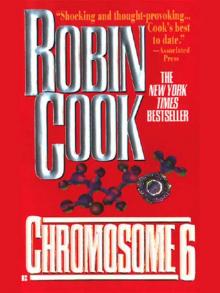 Chromosome 6
Chromosome 6 Brain
Brain Intervention
Intervention Invasion
Invasion The Legend of Parzival: The Epic Story of His Quest for the Grail
The Legend of Parzival: The Epic Story of His Quest for the Grail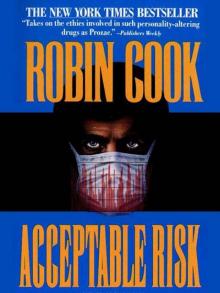 Acceptable Risk
Acceptable Risk Cell
Cell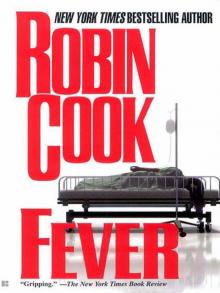 Fever
Fever Death Benefit
Death Benefit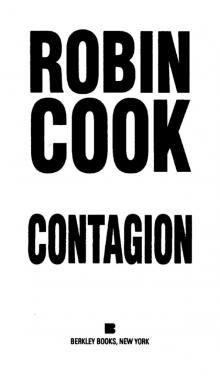 Contagion
Contagion Mindbend
Mindbend Coma
Coma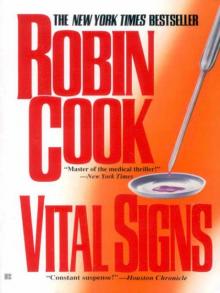 Vital Signs
Vital Signs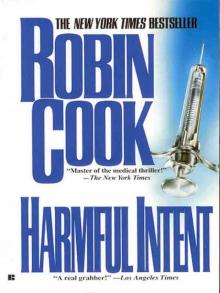 Harmful Intent
Harmful Intent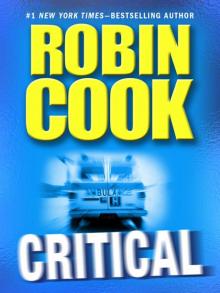 Critical
Critical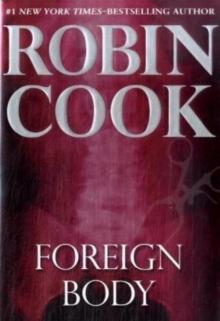 Foreign Body
Foreign Body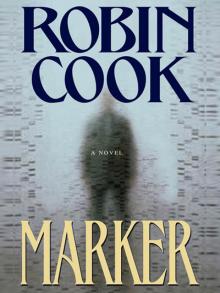 Marker
Marker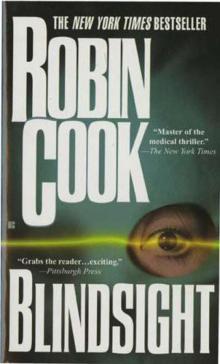 Blindsight
Blindsight Terminal
Terminal Sphinx
Sphinx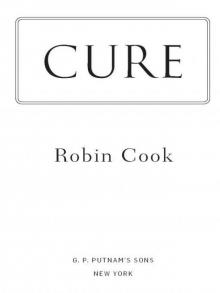 Fatal Cure
Fatal Cure Host
Host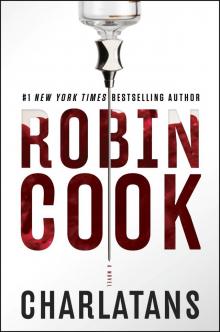 Charlatans
Charlatans Crisis
Crisis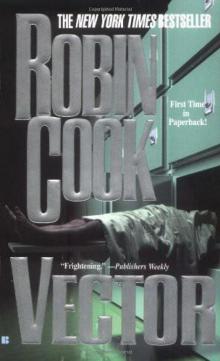 Vector
Vector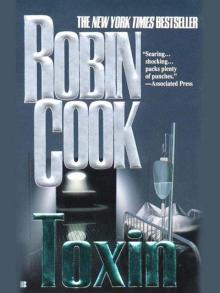 Toxin
Toxin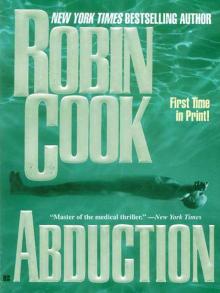 Abduction
Abduction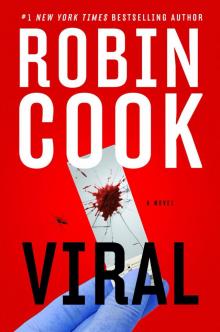 Viral
Viral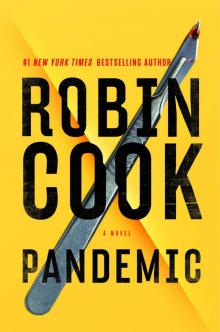 Pandemic
Pandemic Outbreak
Outbreak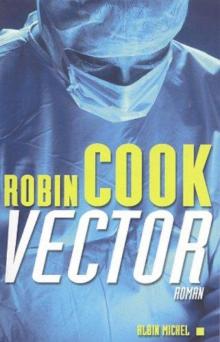 Vector js&lm-4
Vector js&lm-4 Godplayer
Godplayer A Brain
A Brain Year of the Intern
Year of the Intern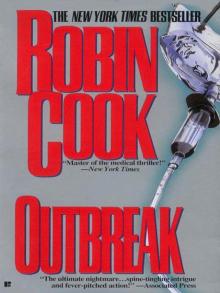 Outbreak dmb-1
Outbreak dmb-1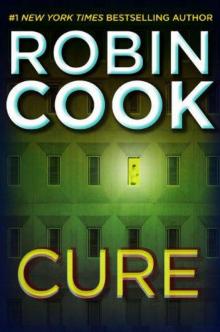 Cure
Cure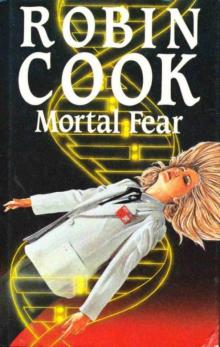 Mortal Fear
Mortal Fear The Legend of Parzival
The Legend of Parzival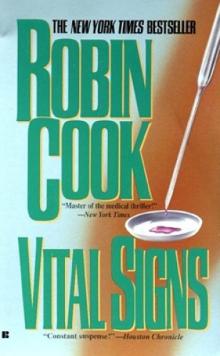 Vital Signs dmb-2
Vital Signs dmb-2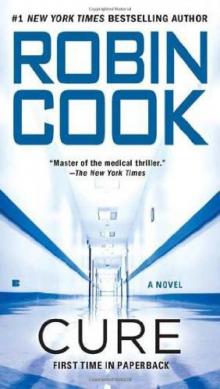 Cure (2010) sam-10
Cure (2010) sam-10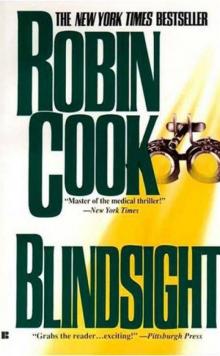 Blindsight sam-1
Blindsight sam-1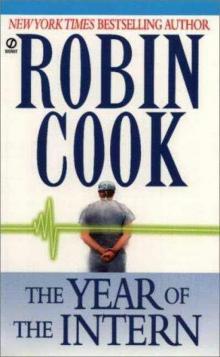 The Year of the Intern
The Year of the Intern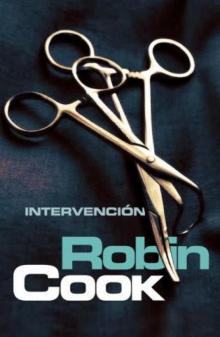 Intervention sam-9
Intervention sam-9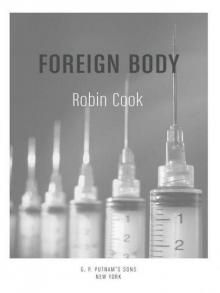 Foreign Body sam-8
Foreign Body sam-8